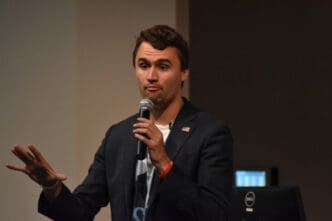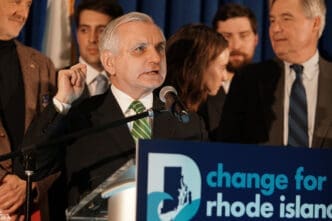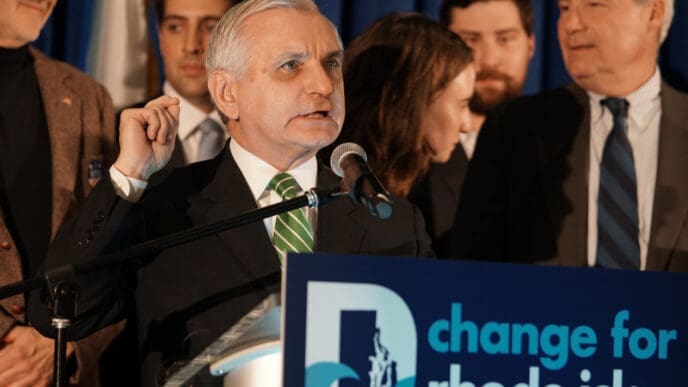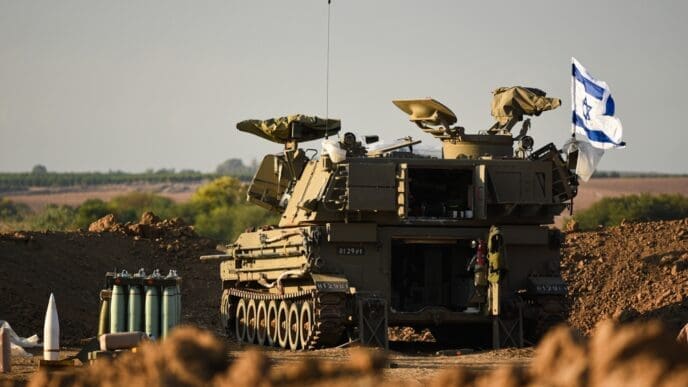Executive Summary
- The assassination of conservative figure Charlie Kirk has intensified political divisions and fears of violence, with President Trump immediately blaming liberals.
- The tragic event has prompted lawmakers to urgently re-evaluate security measures for public figures and discuss the need to de-escalate extreme political rhetoric.
- Kirk’s death, a profound blow to the conservative movement, highlights the struggle among lawmakers to unite and address the country’s tense political discourse.
The Story So Far
- The assassination of conservative figure Charlie Kirk, a key ally of President Trump and influential in the Republican Party’s recent electoral successes, has occurred amid a period of deep political division and escalating fears of violence in American politics. This tragic event has intensified the already bitter partisan rhetoric, with political leaders, including Trump, immediately assigning blame, further hindering efforts to de-escalate tensions and find common ground.
Why This Matters
- The assassination of Charlie Kirk has critically intensified fears of political violence and deepened partisan divisions in Washington, with President Trump’s immediate attribution of blame to liberals making de-escalation exceptionally difficult. This tragic event has compelled lawmakers and President Trump to significantly re-evaluate and enhance personal security measures, leading to adjustments in public engagements and underscoring the urgent need for Congress to address extreme rhetoric and foster unity amidst a deeply polarized political landscape.
Who Thinks What?
- President Donald Trump and some Republicans, including Representatives Anna Paulina Luna and Derrick Van Orden, immediately attributed blame for Charlie Kirk’s assassination to liberals and the “radical left,” citing their extreme rhetoric as a contributing factor.
- Many lawmakers from both parties, including Representatives Stephanie Bice, Richard Hudson, Steve Scalise, Gregory Meeks, and Speaker Mike Johnson, expressed deep concern over the normalization of political violence, emphasized the urgent need to de-escalate rhetoric from all sides, and are actively pursuing increased security funding and measures for elected officials.
- Some Democrats, such as Representative Alexandria Ocasio-Cortez, and even some Republicans, like House Oversight Chairman James Comer, criticized the immediate blame and continued personal attacks, calling such rhetoric “irresponsible” and highlighting that “both parties have guilt” in the current tense political climate.
Washington is grappling with deep divisions and escalating fears of political violence following the assassination of conservative figure Charlie Kirk, which occurred on a college campus Wednesday. In the immediate aftermath, President Donald Trump attributed blame to liberals, further highlighting the struggle among lawmakers on Capitol Hill to unite and de-escalate the country’s tense political discourse. This tragic event has underscored a particularly bitter period in American politics, with both parties expressing heightened concern over the normalization of violent threats against public figures.
Immediate Aftermath and Political Reaction
Within 24 hours of Kirk’s death, President Trump, who stated he loved and admired Kirk, pointed fingers at liberals. This stance has made it exceptionally difficult for lawmakers to find common ground, even as party leaders broadly urged a reduction in political rhetoric. The blame and recriminations from both sides underscore the current tense and bitter political climate.
Representative Stephanie Bice (R-Okla.) emphasized the urgency of finding a path forward, telling CNN, “Political violence is becoming normal. That’s just not acceptable.” She reflected on the world her daughters are growing up in, describing it as “not a good place.”
Impact on the Conservative Movement and Washington
The targeted attack on Kirk, while he was onstage, delivered a profound blow to the conservative movement in Washington. For many within the White House, his death was deeply personal; Kirk was part of a loyal inner circle with open access to the White House and a direct line to Trump.
On Capitol Hill, top lawmakers and aides recalled how Kirk had ignited their political careers and fueled their movement, contributing to the Republican Party gaining full control of Congress last year. Representative Richard Hudson (R-N.C.), chair of the House Republican campaign arm, stated that the country needs to “do better,” advocating for standing on truth while loving those with whom one disagrees politically.
House Majority Leader Steve Scalise (R-La.), who was severely injured in the 2017 congressional baseball shooting, described Kirk’s death as “heartbreaking” and “angry-making,” adding that it brought back “tough memories.” Scalise noted that Kirk’s organization “created a movement” for millions of people within the GOP.
Security Concerns and Legislative Responses
Kirk’s death has forced elected officials nationwide to re-evaluate their personal safety amid a surge in violent acts targeting political figures. Speaker Mike Johnson (R-La.) told reporters that lawmakers from both sides of the aisle were “shaken by this event” and have approached him about increasing their protection, especially in their home districts where U.S. Capitol Police are not present.
In July, following fatal shootings targeting state lawmakers in Minnesota, the House increased security funding and resources for members. Johnson noted that approximately 60 Democrats and 20 Republicans utilized this program, and he plans to assess its effectiveness. He has already begun preliminary discussions with Republican leadership and House Minority Leader Hakeem Jeffries (D-N.Y.) regarding lawmaker security, exploring “all options” while personally intending to continue holding outdoor events.
Debate Over Rhetoric and Unity
Beyond enhanced security, many long-serving members believe Congress must address the extreme voices within both parties. Representative Gregory Meeks (D-N.Y.) emphasized that leaders have a responsibility to address those on their side of the aisle, lamenting that politics has become “not just about getting on social media and getting hits.” Meeks questioned whether the country could achieve the same unity it experienced after September 11, 2001, given the current acute partisan divide.
While many details of Kirk’s murder, including the shooter’s identity, remain unclear, some Republicans, including President Trump, swiftly blamed Democrats for what they described as extreme rhetoric that led to the targeting. Representative Anna Paulina Luna (R-Fla.) reportedly shouted on the House floor that Democrats had “caused this,” and Trump stated from the Oval Office that the “radical left” contributed to Kirk’s murder. Representative Derrick Van Orden (R-Wis.) accused reporters of being responsible for Kirk’s death and previous assassination attempts, alleging they echoed “horrifically horrible political violent rhetoric” from the Democratic Party.
Conversely, many Democrats privately expressed anger at their colleagues and the President for continuing personal attacks. Representative Alexandria Ocasio-Cortez (D-N.Y.), who frequently faces threats, called such rhetoric “extremely disturbing” and “irresponsible” given that the FBI had not yet apprehended an assailant. Republicans also acknowledged the need to de-escalate rhetoric, with House Oversight Chairman James Comer (R-Ky.) stating, “Everybody’s emotions are high. I’m not going to point the finger that either party, both parties have guilt.”
Heightened Security for President Trump and Lawmakers
In the wake of the fatal shooting, the White House implemented additional security measures for President Trump. A 9/11 memorial ceremony Trump attended Thursday morning was relocated from the Pentagon’s traditional outdoor site to an internal courtyard due to ongoing security concerns. Additional security measures were also planned for Trump’s visit to Yankee Stadium, including screening at all entrances and enhanced protection around his viewing box.
Trump also altered his weekend plans, moving from Trump Tower in New York to his Bedminster, New Jersey golf club, a facility considered highly secure. This change mirrored a similar decision after an assassination attempt last year in Butler, Pennsylvania.
Lawmakers, too, have begun adjusting their political operations. Many acknowledged the difficulty of preventing a “calculated, chilling murder” like a single shot from a rooftop. Comer suggested temporarily limiting outdoor events, calling it “terrible that we have to even have that conversation.” Multiple members of Congress and their staff reported postponing outdoor events and some are using personal funds to hire private security for events away from Capitol Hill.
Representative Jared Moskowitz (D-Fla.), who was previously targeted, utilized the pilot program for security funding and now avoids outdoor events. He suggested “wanding” people before they enter events. Representative Ralph Norman (R-S.C.), campaigning for governor, stated that Kirk’s death “affects everything” about campaigning, viewing outdoor events as “all targets.”
Representative Tim Burchett (R-Tenn.), who has faced threats at his home, criticized congressional leadership as “woefully ill-prepared” for the current threat environment. He urged a re-evaluation of security measures, stating, “We always react, overreact after an event happens, we need to react prior to that event happening.” Burchett expressed a somber fear that “something really bad is going to happen before we get something really done up here.”
Representative Tom Cole (R-Okla.), the top House GOP spending leader, indicated readiness to fund any security package proposed by Speaker Johnson. However, he acknowledged that providing every member with a personal security detail, similar to the Speaker or Minority Leader, is “not possible.”
Conclusion
The assassination of Charlie Kirk has plunged Washington into a period of profound reflection, exposing deep partisan divides and intensifying fears about political violence. While lawmakers grapple with immediate security concerns and potential legislative responses, the larger challenge remains how to foster unity and de-escalate rhetoric in an increasingly polarized political landscape. The incident underscores the urgent need for a collective strategy to safeguard political figures while addressing the underlying tensions contributing to a volatile environment.














